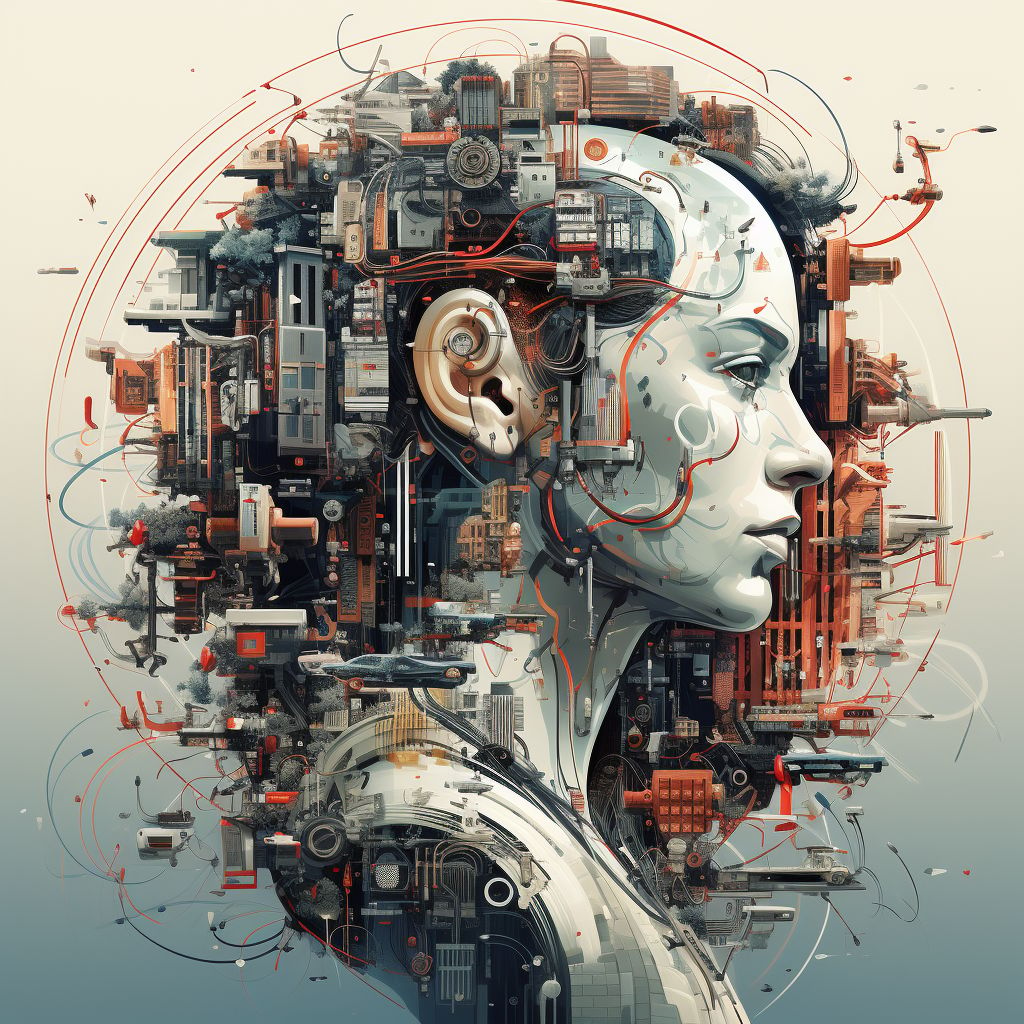- Unsupervised Learning
- Posts
- AI Will Likely Crush the B2B Services Economy
AI Will Likely Crush the B2B Services Economy
Unfortunately the overall services economy makes up ~77% of GDP, and B2B services are around half that

Midjourney 5.2
I've been talking to my buddy Joel Parish about AI since, well, forever (2014?), and dinner last week was more of the same. This time we were riffing about the impact of AI on the economy, jobs, etc. Pretty Basic dinner convo for the Bay Area, honestly.
Anyway, we started thinking about how the economy breaks down into different sectors, and which ones would be hit hardest. Lots of groups have done similar analysis, including this latest one by McKinsey. That one focused on the upside though, similar to this piece I did recently. In this convo, however, we were thinking about the downside impact.
We started talking about services, which is where we think most of the impact will be. And we were talking about companies that exist to provide those services. Then we started thinking about the percentages.
Joel had the great idea to concentrate on the difference between B2B and B2C. B2C seems less vulnerable because the product or service is going directly from the creator to the buyer. We were in NOLA and were using restaurants as an example, where the chef can have a great idea, make the thing, and then serve it.
But B2B is different. It’s especially vulnerable to AI because it’s largely middleware. Not completely, but largely.
So after that conversation I decided to dig in a bit on possible impact, based on some numbers. First, how big is US GDP? Turns out it’s around $26 trillion or so.

And how big is the services sector?

77%.
That’s insane. Now for a harder piece. What percentage of that is B2B? Looks like around half again.

Let’s call that 37% of GDP. So—according to these very rough estimates—37% of GDP is B2B Services.
AI Impact
So what percentage of that might be replaced by AI? That’s much harder to say because of all sorts of variables:
How long are we talking about?
Are we talking about GPT-4 level, or like AGI with a 150 IQ?
Which services? Not all of them are equally automatable.
So given those constraints, let’s ask (of course) ask AI. I seeded it with the information that AI at this particular moment (in the next 2-3 years) can:
Solve some creative problems
Analyze proposed solutions and give recommendations
Summarize nearly any sort of text content and reproduction it in various formats for various audiences
Write, correct, and recommend documentation and many other types of text-based artifact
Execute common tasks like sending emails, creating calendar invites, etc. via APIs
Given those (which I’d argue GPT-4 is getting very close to), here’s what it came back with.

From GPT-4
50-70% lost revenue, and 60-80% lost jobs! That’s ~60% of 37% of GDP, which is…22%.
22% of GDP.
Keep in mind this is all hand-wavy AI talking about AI, and based on estimates of estimates. But I honestly can’t find much flaw in the reasoning here.
More sci-fi stuff (but not really)
For giggles I decided to ask it to project based on a much smarter AI. Here’s what happens if you ask it to do the same numbers with an AGI (my definition here) level AI with an IQ between 120 and 160.

From GPT-4
That’s ~70% revenue loss, and ~80% job loss. Again, based on a whole lot of shenanigans, that doesn’t seem wrong to me.
What do we think this means?
Not much, really. This is all just napkin math stuff combined with science fiction. The main point was to say that the Services economy seems especially vulnerable to AI.
But that’s almost 80% of GDP. And B2B seems extra vulnerable, which is basically half of that, bringing us to something like 40% of GDP.
And GPT-4 thinks if AI hits it in any significant way we could see somewhere like 60-80% impact on the revenue and jobs in the sector.
I think our random guesses without any of this, um, “research”, was something like 50% to 90% of B2B being gutted by AI. So there’s a directional match anyway.
Now what?
I guess the takeaway would be for actual researchers to think about:
What the largest portions of the economy are
Which are most vulnerable to AI
How different levels of AI would impact them differently, since more advanced AI cuts deeper into high-skill knowledge and creative work
Would love to hear your thoughts.